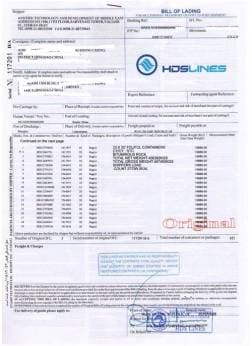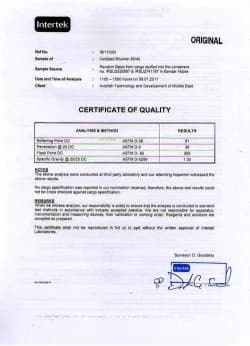Granular Sulfur 99.5% and 99.8%: Properties, Applications
Granular Sulfur is one of the most widely used forms of sulfur in the global market. Its popularity comes from the combination of high purity, stable form, and suitability for industrial and agricultural applications. Compared to lump sulfur, the granular type provides improved handling, reduced dust, and easier application in large-scale operations. This makes it the preferred option for exporters and end-users seeking efficiency and consistent quality.
What is Granular Sulfur 99.5% and 99.8%?
Granular Sulfur is produced by solidifying molten sulfur into small, rounded particles with sizes usually between 2 and 6 millimeters. These granules are bright yellow in color, easy to transport, and safer to handle compared to powdered sulfur. The granulation process ensures uniform particle size, which improves usability in fertilizer plants and minimizes waste during processing.
The standard purity for Granular Sulfur begins at 99.5%, which is suitable for most industrial and agricultural uses. However, many refineries also offer 99.8% high-purity sulfur, which is essential for industries requiring very low impurity levels. Both grades are highly demanded in international trade, and buyers often select between 99.5% and 99.8% depending on their process requirements.
Applications of Granular Sulfur
1. Fertilizer Industry
Granular Sulfur 99.5% and 99.8% are widely used in fertilizer production, particularly in phosphate-based fertilizers. Sulfur improves soil fertility, supports protein synthesis in plants, and enhances enzyme activity. Granular form dissolves slowly in soil, providing a steady nutrient release, which benefits long-term crop yield.
2. Sulfuric Acid Production
A significant portion of global sulfur demand comes from the production of sulfuric acid (H₂SO₄). Both 99.5% and 99.8% granular grades are efficient feedstocks, ensuring high conversion rates with minimal impurities. Sulfuric acid produced this way is used in mining, chemical manufacturing, and detergents.
3. Petroleum Refining
Refineries often require high-purity inputs. While 99.5% purity is generally sufficient, 99.8% Sulfur is preferred when cleaner processes and stricter standards are needed. Its stable form allows safer storage and easier transport within the refinery supply chain.
4. Rubber and Plastics
Sulfur is essential in the vulcanization of rubber, improving elasticity and durability. Both 99.5% and 99.8% granular forms are used depending on quality requirements. The consistent particle size ensures uniform mixing in rubber compounding.
5. Other Industrial Applications
Granular is also applied in paper manufacturing, explosives, water treatment, and detergents. High-purity 99.8% sulfur is especially important where chemical reactions are sensitive to impurities.
Packaging and Transport
Granular Sulfur 99.5% and 99.8% are exported in compliance with international standards. The most common packaging is 1 MT jumbo bags with polyethylene liners for moisture protection. Smaller bags (25–50 kg) can be supplied on request. Bulk shipments in containers or vessels are also common.
From a logistics perspective, both grades are classified as Non-Dangerous Goods (Non-DG) for maritime and land transport. This simplifies international trade and reduces shipping restrictions. However, handling guidelines must still be followed to avoid dust and fire risks.
Safety and Handling
Even though Granular Sulfur 99.5% and 99.8% are considered non-hazardous for transport, proper precautions are essential. Storage areas must be kept dry and ventilated. Dust should be minimized, and protective equipment (masks, gloves, goggles) is recommended during handling. Contact with strong oxidizing agents must be avoided.
FAQs
Q1: What is the difference between 99.5% and 99.8% Granular Sulfur?
99.5% is standard industrial grade, while 99.8% is a high-purity version used in applications requiring very low impurities.
Q2: Which industries use Granular Sulfur the most?
Fertilizer production, sulfuric acid manufacturing, petroleum refining, and rubber industries are the largest consumers.
Q3: How is Granular Sulfur packaged for export?
Both 99.5% and 99.8% grades are usually exported in 1 MT jumbo bags with liners. Bulk container or vessel shipments are also available.
Q4: Is Granular Sulfur dangerous for transport?
No. Both 99.5% and 99.8% Granular Sulfur are classified as Non-Dangerous Goods (Non-DG) for sea and land shipments.
Q5: Why do some buyers prefer 99.8% purity over 99.5%?
High-purity 99.8% sulfur ensures fewer impurities in chemical reactions, making it ideal for industries with strict quality standards.


